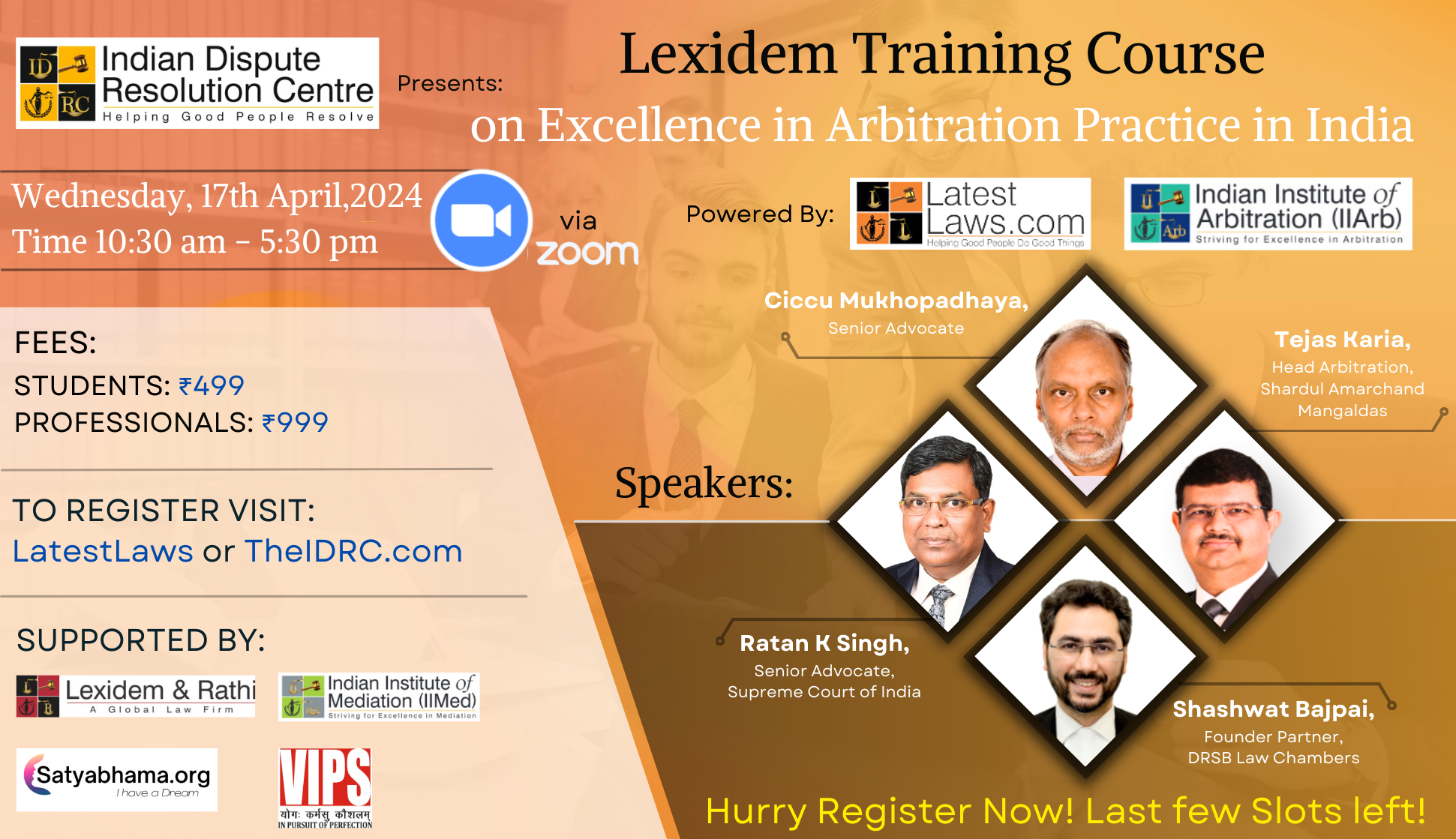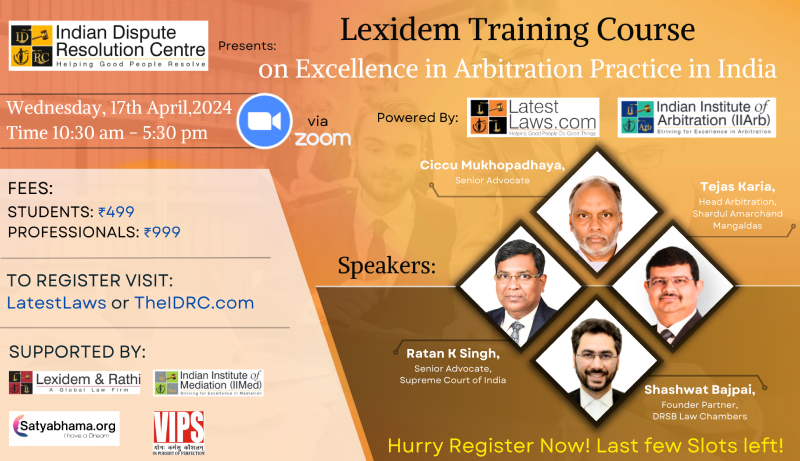July 4, 2018:
Even for pending Rape cases 10 years Minimum Punishment a must By- Rakesh Kumar Singh (Download PDF)
The Criminal Law Ordinance promulgated in this year has made drastic changes in substantive as well as procedural laws. One of such amendments is the prescription of minimum ten years sentence for committing rape under Section-376 IPC. Be it noted that earlier the prescription was for seven years minimum. Without any doubt the purpose was to cast a more deterrent effect on people even thinking about committing such gruesome act. Future therefore is clear. The present paper however is humble attempt to consider the past.
- The simple question is about applicability of ten years minimum prescription as increased to the cases pending or under investigation as on the date of notification of the Ordinance. A cursory search of the vast information available on the world wide web shows that the only inhibition for applicability of such increased minimum prescription is Article-20(1) of the Constitution of India which prohibits an ex-post facto law or a law prescribing greater punishment than what was available at the time when the act constituting the offence was committed. We then have to see if Article-20(1) really is offended by applicability of the increased minimum to pending situations.
- On the issue in hand the most celebrated judgment pronounced by the Supreme Court is K. Satwant Singh v. State of Punjab, (1960) 2 SCR 89 which was rendered by a Constitution Bench. The point dealt therein pertains to sudden prescription of a minimum fine which was contended to be infringing the protection provided by Article-20(1). The Court dealt with the submissions and intricacies in a beautiful manner and some portion from the reported judgment is reproduced herein after for easy understanding in paragraph-4 to 4.4.
- In these appeals State of Punjab has appealed against that part of the judgment of the High Court which set aside the order of the Special Tribunal imposing what has been described as “compulsory” fines. The High Court felt that it was bound by the decisions of this Court in the cases of Rao Shiv Bahadur Singh v. State of Vindhya Pradesh and Kedar Nath Bajoria v. State of West Bengal.
4.1. It was urged by the Solicitor-General that the Special Tribunal was in error in describing the fines imposed by it as “ordinary” and “compulsory”. Section 10 of the Ordinance contemplated no such distinction. What it did direct was, whether or not a sentence of imprisonment was imposed by the Special Tribunal, that a sentence of fine must be imposed and that fine shall not be less in amount than the amount of money or value of other property found to have been procured by the offender by means of the offence. In other words, the section imposed a minimum fine, in any event, whether a sentence of imprisonment was or was not imposed. In the present case a sentence of imprisonment was, in fact, imposed and the total of fines imposed, whether described as “ordinary “or “compulsory”, was not less than the amount of money procured by the appellant by means of his offence.
Under Section 420 of the Indian Penal Code an unlimited amount of fine could be imposed. Article 20(1) of the Constitution is in two parts. The first part prohibits a conviction of any person for any offence except for violation of law in force at the time of the commission of the act charged as an offence. The latter part of the Article prohibited the imposing of a penalty greater than that which might have been inflicted under the law in force at the time of the commission of the offence. The offence with which the appellant had been charged was cheating punishable under Section 420 of the Indian Penal Code, which was certainly a law in force at the time of the commission of the offence.
The sentence of imprisonment which was imposed upon the appellant was certainly not greater than that permitted by Section 420, The sentence of fine also was not greater than that which might have been inflicted under the law which had been in force at the time of the commission of the offence, as a fine unlimited in extent could be imposed under the section. It was further pointed out that at least Case No. 58, out of which arose Criminal Appeal No. 112 of 1949 in the High Court, was one to which the provisions of Article 20 could not apply as the conviction in that case was recorded on the 24th of January, 1949, before the Constitution came into force.
4.2. Mr Harnam Singh, on the other hand, drew our attention to Section 63 of the Indian Penal Code and submitted that a sentence of fine could at no time be excessive and therefore the sentence of fine which could be imposed under Section 420 was not entirely unlimited as it could not be excessive. In considering whether a fine would or would not be excessive various considerations had to be kept in mind including the seriousness of the offence and the means of the accused.
4.3. Section 63 of the Indian Penal Code expressly states that where no sum is expressed to which a fine may extend the amount of fine to which the offender is liable is unlimited. Section 420 of the Indian Penal Code does not express a sum to which a fine may extend, as some of the sections of the Indian Penal Code do. As the section stands, therefore, the extent of fine which may be imposed by a Court under it is unlimited. Whether a fine imposed in a particular case is excessive would be a question of fact in each case. That consideration, however, is entirely irrelevant in considering whether Article 20 of the Constitution has been contravened by the provisions of Section 10 of the Ordinance as the extent of fine which can be imposed under Section 420, by law, is unlimited. It cannot be said that Section 10 of the Ordinance in imposing the minimum fine which a court shall inflict on a convicted person was a penalty greater than that which might have been inflicted on that person under the law in force at the time of the commission of the offence, where under such law the extent of fine which could be imposed is unlimited.
4.4. In the case of Rao Shiv Bahadur Singh, referred to above, this Court held that Article 20 of the Constitution must be taken to prohibit a conviction or subjection to penalty after the Constitution in respect of ex post facto law whether the same was a pre-Constitutional law or a post-Constitutional law. The prohibition under the Article was not confined to the passing or the validity of the law but extended to the conviction or the sentence and was based on its character as ex post facto law and therefore fullest effect must be given to the actual words used in the Article. It had been urged in that case that the Vindhya Pradesh Ordinance (No. 48 of 1949) was an ex post facto law. This Court, however, held that that Ordinance was not an ex post facto law. The contention that the provisions of Article 20 of the Constitution had been contravened was rejected and it was held that the criminal law relating to offences charged against the accused at the time of their commission was substantially the same as obtained at the time of the conviction and sentence under the Indian Penal Code. In Rao Shiv Bahadur Singh case[(1953) SCR 1189] this Court had not to consider whether an ex post facto law imposing a minimum fine for an offence with respect to which an unlimited fine could be imposed by the law in existence at the time of the commission of the offence contravened the provisions of Article 20.
In Kedar Nath Bajoria case, in addition to the sentence imposed under the ordinary law, the first appellant was fined Rs 50,000, including the sum of Rs 47,550 received by him as required by Section 9(1) of the West Bengal Criminal Law (Amendment) Act of 1949.
Reference to the decision in Rao Shiv Bahadur Singh case [(1953) SCR 1189] was made and this Court held that, in any event, the fine to the extent of Rs 47,550 would be set aside. This Court, however, did not decide whether the total fine imposed was greater than what could be imposed under the law as it was at the commission of the offence.
It assumed that Rao Shiv Bahadur Singh case [(1953) SCR 1189] supported the contention of the first appellant in that case. It is significant that in directing that the appeal would be heard in due course on merits this Court stated that it would be open to the Court in case the conviction was upheld to impose such appropriate fine as it thought fit in addition to the sentence of imprisonment. In the present case even if it be assumed that Section 10 of the Ordinance as an ex post facto law in that in the matter of penalty a minimum sentence of fine was directed to be imposed by a court whereas at the time that the appellant committed the offence Section 420 contained no such provision, what is prohibited under Article 20 of the Constitution is the imposition of a penalty greater than that which might have been inflicted under the law in force at the time of the commission of the offence.
The total sentence of fine “ordinary” and “compulsory” in the present case cannot be said to be greater than that which might have been imposed upon the appellant under the law in force at the time of the commission of the offence, because the fine which could have been imposed upon him under Section 420 was unlimited.
A law which provides for a minimum sentence of fine on conviction cannot be read as one which imposes a greater penalty than that which might have been inflicted under the law at the time of the commission of the offence where for such an offence there was no limit as to the extent of fine which might be imposed. Whether a fine was excessive or not would be a question of fact in each particular case but no such question can arise in a case where the law imposes a minimum sentence of fine.
Under Article 20 of the Constitution all that has to be considered is whether the ex post facto law imposes a penalty greater than that which might be inflicted under the law in force at the time of the commission of the offence. For the reasons already stated it cannot be said that Section 10 of the Ordinance imposed any such penalty and therefore was in contravention of the provisions of Article 20.
- What is clear from the above is that until the upp er limit is violated by the subsequent legislation, the providing of minimum punishment will not infringe the protection granted by Article-20(1). The Supreme Court having clarified their judgments rendered in Rao Shiv Bahadur Singh case and Kedar Nath Bajoria case, need is not felt presently to comment on those judgments.
- It is not as if the judgment in Satwant Singh has been overruled. Though in slightly different manner, the ratio of Satwant Singh case in respect of Article-20(1) of the Constitution came before the Supreme Court after a quarter century and Counsel therein argued for its re-consideration but the Court disallowed the same while observing: “The contention of Mr Dholakia that in proving a prescribed rate of penalty for imposition under Section 271(1)(a) of the 1961 Act there has been breach of Article 20(1) of the Constitution cannot be accepted. A five-Judge Bench of this Court in K. Satwant Singh v. State of Punjab [AIR 1960 SC 266 : (1960) 2 SCR 89 : 1960 Cri LJ 410] examined a similar submission at great length keeping Article 20 of the Constitution in view. In the matter before the Constitution Bench this question arose for consideration in view of the fact that no minimum sentence of fine had been provided under Section 420 of the Indian Penal Code which was the law in force at the time of the occurrence but the provisions of Ordinance No. 20 of 1943 made imposition of a minimum fine compulsory..................................................... While conceding to that extent, Mr Dholokia submits that the decision of the Constitution Bench of this Court in Satwant Sigh case [AIR 1960 SC 266 : (1960) 2 SCR 89 : 1960 Cri LJ 410] requires reconsideration as it has not taken into account the ratio of an important decision of the United States Supreme Court in the case of Elbert B. Lindsay v. State of Washington [(1937) 81 L Ed 1182]. We are bound by the decision of the Constitution Bench. It has held the field for a quarter of a century without challenge and non-consideration of an American decision which apparently was not then cited before this Court does not at all justify the submission at the Bar for a reconsideration of the decision of this Court in Satwant Singh case”. (see a three judges bench decision in Maya Rani Punj v. CIT, (1986) 1 SCC 445).
- It is clear that the ratio of Satwant Singh case has become the law of the land and therefore it has to be accepted that the contravention is limited to upper extent in Article-20(1) and not in respect of any minimum prescription. Now, someone may argue that the case of Satwant Singh was related to fine and therefore the same will not apply to the cases of minimum imprisonment. In this respect we need to know as to what constitute the penalty appearing in Article-20(1). Naturally, in respect of consequence of an offence, the term penalty will mean the punishment.
Punishment is a term which has been defined in the Indian Penal Code, 1860 in a manner of classification. Section-53 IPC provides for the same and indicates certain type of punishment such as Death, Imprisonment for life, Rigorous imprisonment, Simple imprisonment, Forfeiture of property, Fine.
- What becomes immediately clear is the fact that fine is nothing but a punishment. In Satwant Singh case, the offence was Section-420 IPC and fine was dealt with as a punishment. There is neither any reason nor any justification to distinguish the different types of punishment for the purpose of Article-20(1). As such, ratio of Satwant Singh will equally apply to the cases of punishment where sentence of imprisonment is involved. It can therefore be said that if a subsequent legislation amends the IPC to provides for a minimum imprisonment for any offence, the same will not offend the protection granted by Article-20(1) as long as the legislation does not enhance the upper limit of the punishment for the said offence.
- If providing minimum imprisonment by subsequent legislative amendment does not violate Article-20(1), it would be futile to argue that increasing the minimum punishment will so offend. We will have to accept that if a subsequent legislation amends the existing law with a view to provide for increased minimum imprisonment, the same shall be treated as valid and will not offend the protection granted by Article-20(1).
- With the above settled position in mind, we may now consider the impact of recent Ordinance which amended the punishment for rape as available in Section-376(1) IPC. By this Ordinance, the minimum imprisonment of 7 years has been increased to 10 years. The Ordinance has become effective with effect from 21.04.2018. A superficial reading of the ordinance will show that only the offence of rape committed after the notified date will attract a minimum 10 years imprisonment and other pending case will be governed by 7 years minimum imprisonment. However, in terms of the ration of Satwant Singh case, the amendment increasing the minimum to 10 years will also apply to pending cases also. Be it noted that the Ordinance has not changed the upper limit of the punishment so far as Section-376(1) is concerned and therefore there cannot be any infringement of Article-20(1). As such, if a rape accused is convicted on any day w.e.f. 21.4.2018, he will have to be visited with a minimum punishment of 10 years imprisonment.
- Law is well settled that where a law fixes the minimum punishment, court can not claim to have any discretion to award a sentence lesser than the said minimum. The criminal law adheres in general to the principle of proportionality in prescribing liability according to the culpability of each kind of criminal conduct. It ordinarily allows some significant discretion to the Judge in arriving at a sentence in each case, presumably to permit sentences that reflect more subtle considerations of culpability that are raised by the special facts of each case. Judges in essence affirm that punishment ought always to fit the crime; yet in practice sentences are determined largely by other considerations. Sometimes it is the correctional needs of the perpetrator that are offered to justify a sentence. Sometimes the desirability of keeping him out of circulation, and sometimes even the tragic results of his crime. Inevitably these considerations cause a departure from `just desserts' as the basis of punishment and create cases of apparent injustice that are serious and widespread. However, if law does not give discretion to reduce the minimum, the court cannot do so in any circumstance whatsoever.
- Now it cannot be case that the court can punish a rape offender for any terms of less than 10 years. Be it noted that after the 2013 amendment the proviso giving discretion for awarding lesser sentence in certain exceptional cases ceases to exist and therefore no discretion is left with the courts to award sentence lesser than the minimum for any special reason or whatever.
- In view of the above analysis, it is to be accepted that if a court pronounces its verdict on any day w.e.f. from 21.04.2018 against a rape accused irrespective of as to when the offence was committed, it has to impose a minimum sentence of 10 years imprisonment and there is no discretion with the court to award any lesser sentence.
- Of course, the court may go to the upper limit i.e. imprisonment for life. In some other paper we will discuss the other rape offences.
Picture Source :




























